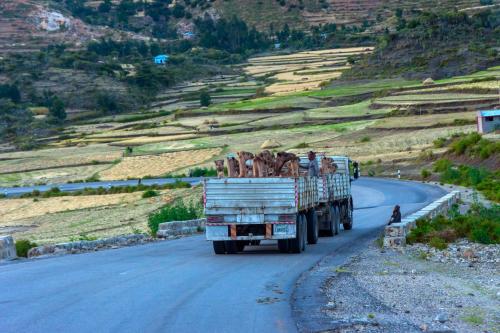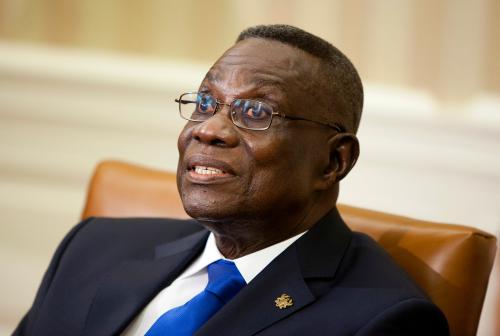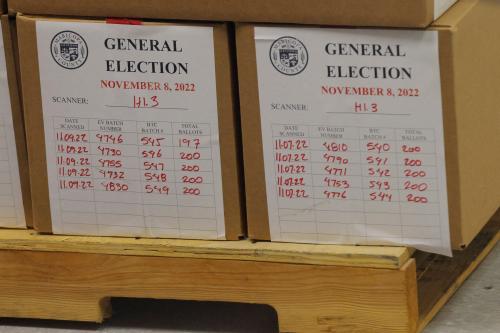African economies projected to rebound in 2021
Economic growth in Africa is expected to rebound after its worst recession in 50 years, according to the African Development Bank (AfDB)’s African Economic Outlook 2021. The AfDB predicts that digitization and fair competition will drive a 3.4 percent expansion in real GDP in 2021 and sustained growth beyond 2021. The report emphasized the impact that the COVID-19 pandemic has left on the African economic landscape, estimating that the virus and subsequent policies to stop its spread had caused 30 million Africans to slip into poverty in 2020. During this time, Africa’s economies contracted by 2.1 percent.
In attempt to weather the pandemic, governments substantially increased their spending, which saw debt-to-GDP levels increase by 10 to 15 percentage points, leaving governments with less flexibility to guide a post-pandemic recovery. As a result, the AfDB highlighted the importance of reducing the debt burden in future economic growth. It also called upon the international community to coordinate with African policymakers and debtholders to achieve financial stability and prospects for growth.
For strategies on how governments can tackle the challenge of debt sustainability, consult “Debt sustainability and financing for development: A key post-COVID challenge,” in this year’s Foresight Africa.
President of Tanzania, John Magufuli, passes away
On Wednesday, March 17, the Tanzanian government announced that the country’s president, John Magufuli, passed away due to heart complications at age 61. Vice President Samia Suluhu Hassan, who will fulfill the rest of Magufuli’s five-year term, will be the country’s first female president.
Questions over Magufuli’s health had swirled in recent weeks, as he had not been seen in public since late February. Many in the opposition claimed he had contracted the SARS-CoV-19 virus, a claim that administration officials vehemently denied, instead stating the president was healthy and working hard.
In fact, earlier this week, authorities arrested four people on suspicion of spreading rumors of the president’s ill health. The past year of Magufuli’s tenure had been marked by avid COVID-19 denials, with refusals to publish COVID numbers starting in April 2020 and claims that Tanzania had eradicated the disease in June through prayer and unproven cures. As a result, Magufuli also declined to secure vaccines for his country, instead claiming that people who left the country to get vaccinated were responsible for bringing the disease back in. Earlier this year, the U.S. embassy in Dar-es-Salaam refuted claims that Tanzania was COVID-free, instead warning of a surge in the country and advising travelers not to travel there.
According to close observers, the late president’s legacy has drawn mixed reactions from within and outside the country. Magufuli came to power in October 2015 under an intense message of stamping out corruption, but his tenure soon came under fire due to controversial policies regarding the press, political expression, and free speech. Magufuli was also embroiled in controversy over his election win late last year, over which international observers, including the U.S. embassy, raised concerns over the credibility of the results and treatment of the opposition in the run-up to the polls.
For a reflection on the importance of disclosures of leader’s health statuses for the stability of their countries, see Mwangi S. Kimenyi and Vera Songwe’s 2012 op-ed on the issue.
Central African Republic holds parliamentary election despite unrest
The Central African Republic (CAR) held the second round of their parliamentary elections this past Sunday amid continuing unrest. Following the December election, in which President Faustin Archange Touadéra won reelection, rebel insurgents, who call themselves Coalition of Patriots for Change, besieged the capital of Bangui. Their attack on the city inhibited access to food supply routes and displaced more than 200,000 civilians. Indeed, recent years have seen continued violence among such groups, creating the need for increased security: Following prior election violence, the U.N. Security Council bolstered the peacekeeping force in the CAR by approximately 3,700 military and police personnel.
According to the U.N., the rebel insurgents are sponsored by former President François Bozizé, who lost December’s presidential election, alleging it was marred by voting irregularities, and seeks to retake control of the country. In response to the brewing conflict, U.N. peacekeepers and the CAR’s national army, aided by Rwandan and Russian forces, have retaken numerous rebel strongholds. Pointing to the military’s success, government officials and the U.N. peacekeeping mission were optimistic going into Sunday’s election that it would be peaceful. An African Union mission independently overseeing the election has reported that they were “satisfied” with the conduct of the election. As of this writing, the results are yet to be released.








Commentary
Africa in the news: Africa’s economic outlook, Tanzanian President Magufuli’s passing, and CAR’s election
March 20, 2021